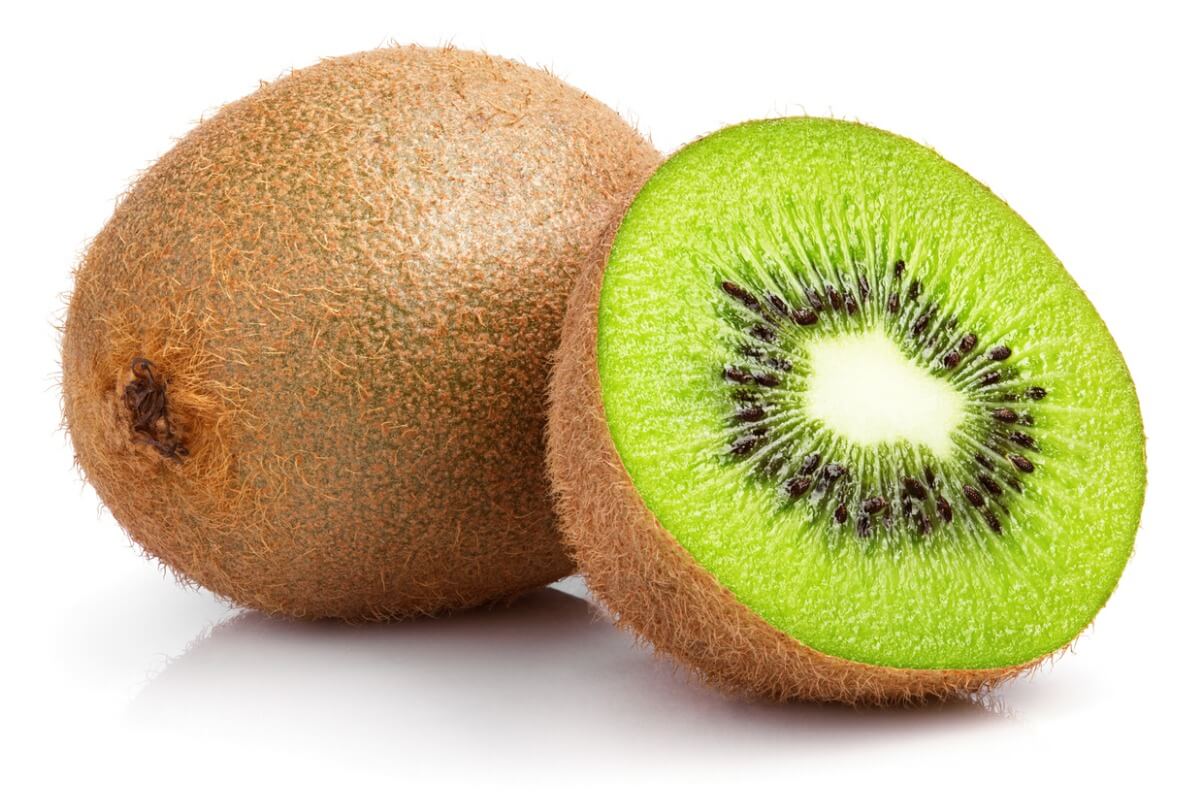Is Kiwi Good for Dogs?
Kiwi has benefits and contraindications that you should know about before giving it to your pet. Its health can be compromised if you don't do it correctly.

Sharing food with your dog is almost instinctive – especially when it looks so innocent. However, certain foods can be harmful to domestic dogs. So, have ever wondered: is kiwi good for dogs? Can they eat it safely?
The answer is yes. Kiwi has many health benefits, both for dogs and humans. However, it is necessary to take into account a series of considerations so that it doesn’t harm your furry friend. Find out all about it.
Is kiwi good for dogs?
Kiwi for dogs is suitable and beneficial for dogs, as long as it’s used as a treat, as with other fruits. It’s also good for the dog to have a variety of vegetables in its diet, otherwise the contraindications of individual ones may be accentuated.
Learning to correctly include kiwi in the canine diet requires certain knowledge that we’ll bring you later. Of course, first of all, you should check that there are no potential allergies or intolerances to this fruit, otherwise it may cause problems for your dog.
Kiwi benefits and properties
Kiwi has a long list of benefits that humans take great advantage of, but this can’t be applied equally to dogs. However, that doesn’t mean that kiwi is of little benefit to dogs, quite the opposite in fact. Here are some of its benefits:
- Improves mobility: Kiwi contains about 250 milligrams of potassium in each unit, a highly beneficial nutrient for muscle maintenance, as it intervenes in muscle contraction — along with calcium.
- Reduces cholesterol: Its high content of soluble fiber —2.4 grams — favors the reduction of cholesterol in the blood. The water content carries these molecules along with some toxins and they’re eliminated through the feces.
- Improves digestion: Even though omnivores can’t extract energy from fiber, it’s beneficial for the intestinal flora. It favors the absorption of nutrients and increases the size of the stools, which prevents constipation.
- Antioxidant effect: Kiwi contains more than 100% of the recommended daily amount of vitamin C. This, in addition to strengthening the body’s defenses, has a fundamental role in stopping oxidative stress in cells. By reducing the amount of free radicals in the blood, vitamin C also forms a protective factor against the appearance of tumors, as indicated by scientific studies.
In addition to all these benefits, kiwi is low in sodium and saturated fat, making it a healthy treat for your dog. We’ll now give you information on how to give the appropriate dose of this fruit to your pet.

Kiwi dosage for dogs
The dog is a non-strict carnivorous animal, which means that its digestive system tolerates and benefits from plant foods, but these must be dosed so as not to produce alterations. Each dog, depending on its size and eating habits, can tolerate fruit to varying degrees, so you should introduce it into its diet progressively to see how it feels.
The best thing is that the kiwi is well ripe – in order to prevent acidity from causing stomach damage to the animal. The skin and seeds should be removed before giving it to them. Once you can see that it tolerates it without a problem, the maximum dose is one slice a day of kiwi for dogs.
As mentioned above, a piece of kiwi as a treat is beneficial for them. It isn’t good for them to eat it every day; it should be administered only sporadically.
Kiwi contraindications
When the dog has a nutritional deficit, kiwi is a great supplement to help them recover. However, as with everything, before supplementing your dog’s diet, you should consult a veterinarian, who will carry out the necessary tests and adjust the diet. A wrong dosage of kiwi for dogs can have the following contraindications:
- Hyperkalemia: Too much potassium in the body can cause arrhythmias or other ECG abnormalities, as well as nausea, vomiting, muscle weakness, and kidney problems.
- Hypervitaminosis C: When the body has an excess of vitamin C, the main affected system is the kidney. Its accumulation in the kidneys can cause stones, especially if it’s administered in periods of medication.
- Heartburn: If not given to the dog ripe, kiwi can cause a stomach upset due to its acidity. Dogs with a delicate stomach shouldn’t eat acidic foods, as the consequences can range from abdominal pain to gastric ulcers.
- Diarrhea: The high fiber content of kiwi can cause diarrhea if the recommended amount is exceeded. Remember that it’s a nutrient that the dog’s body can’t assimilate.
Is kiwi essential for dogs?
If you’re wondering whether kiwi is necessary in a dog’s diet, the answer is no. For humans, the contribution of vitamin C is essential, as our body does not produce it naturally. Dogs, on the other hand, do, and so they don’t need the extra contribution, although it can come in handy.
An adult dog needs 18% protein and 5% lipids daily in their diet. Vitamins, minerals and fiber must be adjusted according to the individual.

Wanting to supplement your dog’s diet to improve its health is always positive. However, before making any decision, it’s very important to know how the animal’s body works. Remember that applying human principles to other species can lead to unexpected complications. Finally, if you have any questions, consult your trusted professional.
